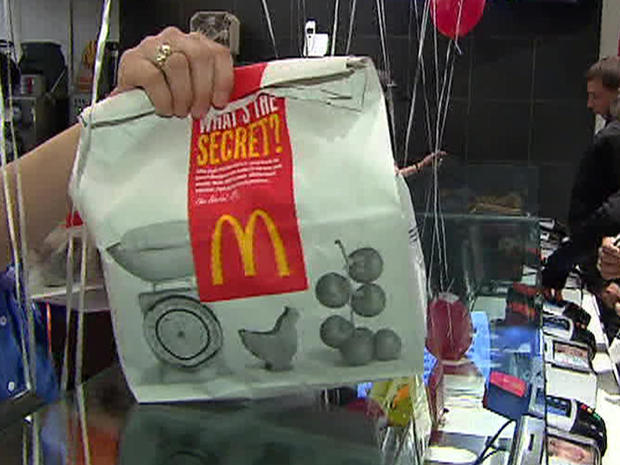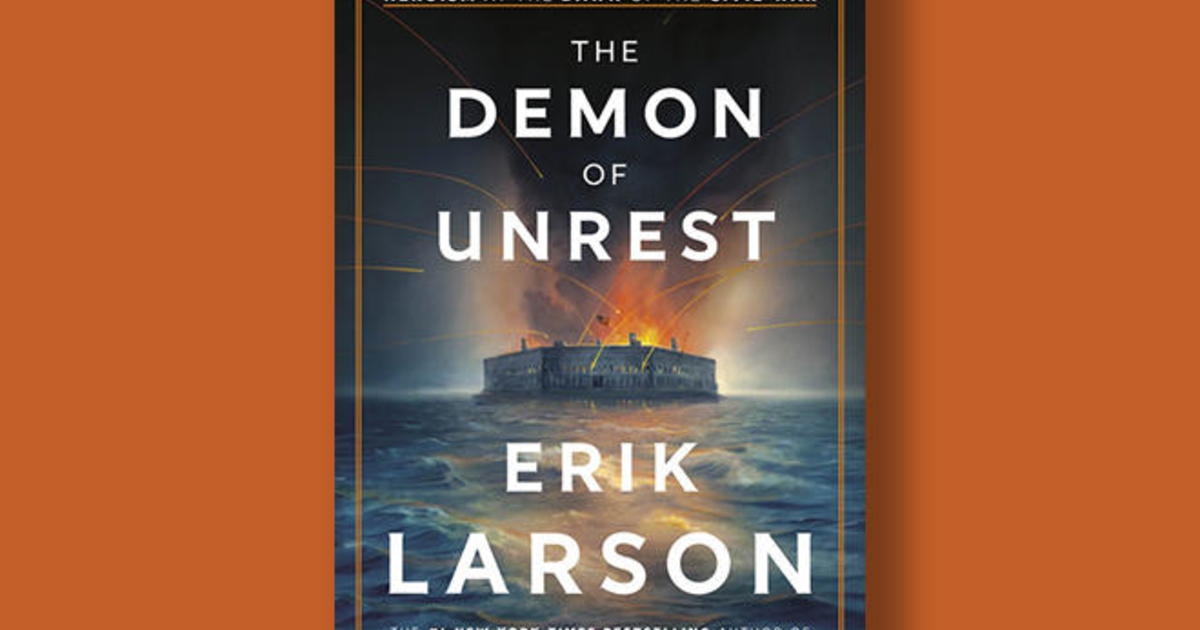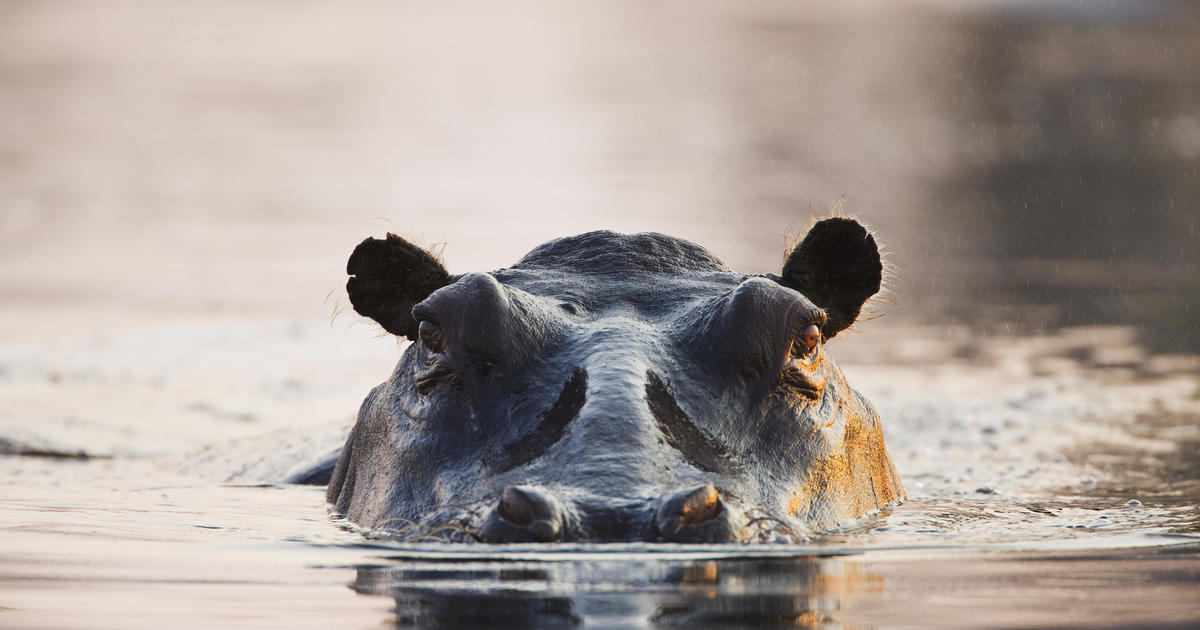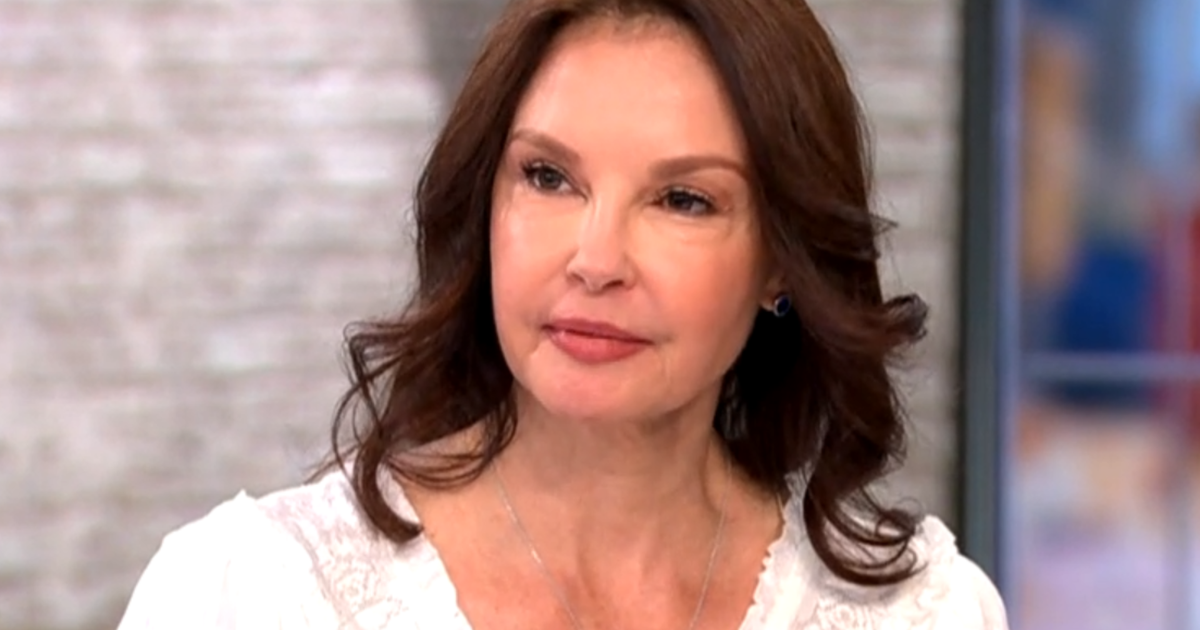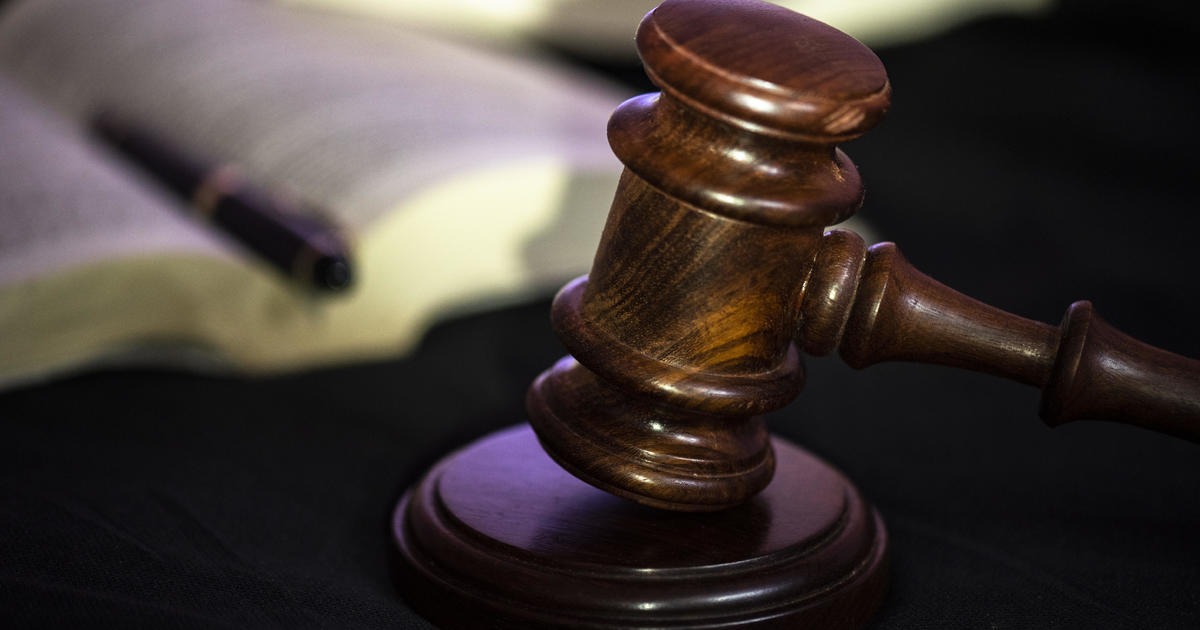Female McDonald's employees accuse fast-food chain of abuse, harassment in workplace
Young women from across the country with remarkably similar accounts of workplace abuse and harassment at one of America's largest, most iconic fast-food restaurant chains: McDonald's:
"He would make comments on my body, and other workers' bodies, saying, like, 'I would have sex with you, I wouldn't have sex with her,'" said Emily Anibal.
"First he was like, 'You have nice hair,' started touching my hair," said Jamelia Fairley. "Then he was like, physical; then he actually started grabbing my butt."
Kat Barber said, "Any woman that he could get his hands on or be near, he was taking advantage of that moment."
Kimberly Lawson said, "It kind of made me feel isolated. I thought I was the only one this is happening to right now, you know what I'm saying? So, I just felt, like, completely alone."
Lawson, Fairley, Barber and Anibal have all either filed discrimination charges or filed suit against McDonald's corporate restaurants or their independently-owned franchises. Each tells a story of persistent and unwanted harassment from male co-workers.
Barber said, "The tongs that we used to make the food, he'd use those to, like, grab my breasts."
"48 Hours" correspondent Erin Moriarty asked, "Did he do that when it was just the two of you, or did other people see this going on?"
"He didn't try to hide it at all," she replied. "It was in front of everybody."
Gillian Thomas, a senior attorney with the American Civil Liberties Union, said, "It is hard to believe that, in this day and age, that it's still happening this egregiously, this out in the open."
Thomas said hundreds of female employees have been subjected to sexual harassment at McDonald's restaurants, as described in as many as 100 lawsuits and charges of discrimination.
"The other piece that's especially shocking at McDonald's, which, of course, bills itself as America's best first job, is how young the victims are – 15, 16, 17 years old," Thomas said.
"You're not saying this only happens at McDonald's?" asked Moriarty.
"Oh, far from it. The food service industry generally is one of the worst for sexual harassment claims."
Last year, in a survey of nearly 800 female workers at McDonald's restaurants and franchises, three-quarters said they were harassed at work. In that same survey, commissioned by unions, a majority (71%) said that they suffered consequences for reporting the behavior.
But a company spokesman disputes the findings, saying the sample size was too small, and "not consistent with what we are seeing in McDonald's restaurants."
And yet, there are stories like Jamelia Fairley's. She told Moriarty that, after she reported the harassment, "they gave me 11 hours to 15 hours. And I couldn't work with those hours; it wasn't enough, it wasn't helping me keep my place."
In late 2018, Fairley, then 24 years old and a single mom, was working at a corporate-owned McDonalds in Florida when, she said, a new co-worker began making lewd comments and touching her.
"When he first touched me, I told him to keep his hands to himself, like 'Don't touch me,'" she said.
"And what was his reaction when you said that?" Moriarty asked.
"He thought it was a joke."
"Did other people see this happening?"
"Yes," Fairley replied, "and he was doing it to other women at McDonald's as well. I wasn't the only one."
Fairley reported the behavior to both a supervisor and the general manager, and yet, she said, that didn't end the offensive behavior: "It even got worse, to the point where he pushed me, like, he grabbed me into his groin area. Managers were standing there watching him do it, like, and they didn't do nothing about it."
He was eventually transferred to another store, she said, but not until Fairley reported another incident with a different co-worker: "This particular comment, he, like, really made me really upset. … He had asked me how much would it be to have sex with my daughter at the time, and she was only one years old."
That employee was fired.
Fairley stayed. She said she needed the job, "so that I could provide a roof over her head."
In a corporate video, McDonald's new CEO, Chris Kempczinski, says the company wants to be a leader when it comes to values: "That's why now is the right time to have this conversation … We do the right thing for the right reasons. I love that phrase because it hits you in the gut. Everybody knows what it means to do the right thing."
In late 2019, the company did put out an extensive new policy for dealing with sexual harassment in its corporate stores. But 95% of McDonald's are independently-owned franchises, and there the policy is only a "resource" – not a requirement.
And this is how some past employees describe the sexual harassment training they received:
Kimberly Lawson, who worked at a McDonald's franchise in Kansas City in 2017 and 2018: "My orientation was a lady, she sat across from me. She had a stack full of papers. She said, 'Here, we're gonna run through this really fast. I need you to just sign and date everything so we can get this done.'"
Moriarty asked, "Do you know whether you signed something that did list the policy having to do with complaints like sex harassment, and what you do if you do encounter it?"
"I have no idea," Lawson replied.
We heard the same story over and over again.
Fairley said, "I never got taught any training on that at all."
Emily Anibal said, " I don't remember any training on that, or hearing about that."
Kat Barber said, "There was a page in the policy book that I signed, but no one, you know, went through it with me."
The ACLU's Gillian Thomas said, "So, a policy that's on a piece of paper, stuck in a handbook that is never actually lived in the work environment, is worthless."
Which may be how a worker in a McDonald's franchise in Mason, Michigan was able to harass colleagues there for years.
Eve Cervantez, an employment lawyer suing McDonald's and the franchise, said, "This is a case where there was a serial harasser, a serial predator. He harassed, you know, every woman who was there, basically."
Anibal was 17 years old when she went to work at that McDonald's in April 2016, and encountered Shawn Banks, a shift manager.
Moriarty asked, "How often would he be making comments or touching somebody?"
"Pretty much every shift, for most of the shift," Anibal replied.
"Did you think you just had to put up with it?"
"Yeah, that was kind of the environment I think that was built at that restaurant, is that, 'This is normal. And if you don't like it, then you can leave.'"
She finally did leave, in the spring of 2017. Five months later, when Barber (then 18) starting working there, Banks was still a manager.
She told Moriarty, "He used to call me 'bitch,' a 'c***,' 'ugly.' I was 'fat,' I told him to stop."
"And would he?"
"No," said Barber. "If anything, it would make him persist more."
Barber said she reported the behavior to the general manager: "I normally would either get a laugh, [or] get told that I was being dramatic."
In September, 2018, she, too, quit her job.
Moriarty asked, "In the end, what made you leave?"
"It was way too much to watch not only others get sexually harassed, but also get myself get sexually harassed," Barber said. "It was causing such an impact in my life personally. Even when I was looking for new work, I was having anxiety about whether someone at that work was gonna be sexually harassing me."
Shawn Banks did not respond to CBS News' request for an interview. The owner of the franchise, through an attorney, declined to answer written questions.
Moriarty asked attorney Eve Cervantez, "Isn't this just a matter of one bad apple?"
"It's really not about one bad apple. The problem is not just that you have a harasser; it's that you have an harasser who is not being stopped."
After Anibal and Barber – along with several other women – filed suit, the franchise owner sold its stores.
Moriarty said, "McDonald's could say, 'How are we going be able to monitor the environment in every single one of these McDonald's?'"
"First of all, McDonald's actually does impose a great deal of control on its franchises,' Cervantez replied. "You go to McDonald's anywhere in the country, they manage to have the exact same hamburgers and fries. So, they do actually have a lot of control. So, McDonald's corporation could certainly be training these general managers about sexual harassment and about how to handle it."
In its statement to CBS News, McDonald's said that it "makes training available ... to its franchisees" ... and has "made a hotline available for all franchisees to provide to their employees."
If McDonald's is held liable in the cases filed by these women, the damages may not be substantial; none was making more than $14 an hour.
But in a job that some see as inconsequential, Jamelia Fairley said she is finally being seen and heard.
Moriarty asked, "Do you have regret sometimes about complaining?"
"No, I have no regrets about complaining at all," Fairley replied. "I feel like I stood up for myself. I stood up for my daughter. I stood up for other women who he was bullying. I feel like I was making a difference."
For more info:
- McDonald's
- Gillian Thomas, ACLU Women's Rights Project
- Eve Cervantez, Altshuler Berzon LLP
- Fight for 15
Story produced by Sari Aviv. Editor: George Pozderec.
